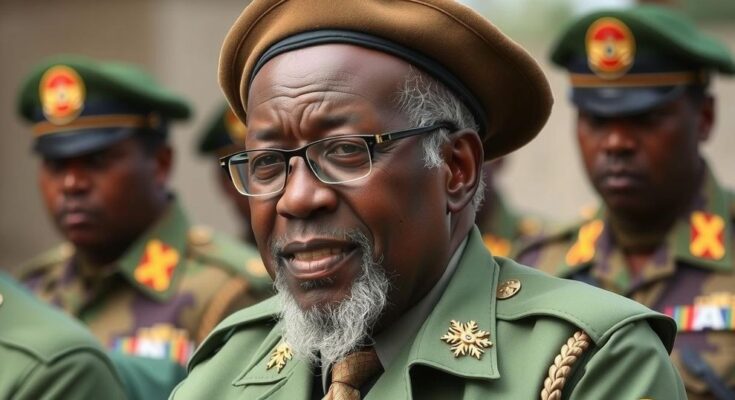Analysts express concern that the sanctions against Sudan’s paramilitary leader come too late, emphasizing the ongoing human rights atrocities, including genocide. Joseph Siegle from the Africa Center for Strategic Studies suggests that Turkish mediation could help resolve the conflict. Moreover, South Sudan is addressing wildlife poaching issues, highlighting its commitment to environmental conservation amid significant regional instability.
The urgent call for sanctions against Sudan’s paramilitary leader is perceived by analysts as a delayed response to ongoing atrocities in the country. Joseph Siegle, the Director of Research at the Africa Center for Strategic Studies, indicates that the international community’s tardy intervention may undermine prospects for peace. Furthermore, The Sentry reports grave human rights violations in Sudan, which include acts deemed as genocide. In a concurrent development, South Sudan has issued a warning to poachers regarding wildlife protection, emphasizing its commitment to conservation. Media coverage of these events underscores significant political and humanitarian challenges facing both Sudan and South Sudan.
This complex scenario manifests a critical period in the Horn of Africa, where political unrest in Sudan has escalated, prompting calls for better diplomatic engagement. The Turkish offer to mediate may serve as a glimmer of hope amidst the chaos, but observers remain skeptical given the dire humanitarian situation and long-standing governance issues. The interplay of military, community interests, and regional dynamics adds layers of difficulty to achieving lasting peace.
In summary, the situation demands urgent international attention and effective strategies to address the underlying issues inciting violence and human rights violations in the region. A focus on collaborative diplomatic efforts may yield better outcomes than sanctions alone, fostering reconciliation and restoring stability.
The purpose of this discussion showcases the intertwining humanitarian crisis, regional politics, and the possibility of reformative measures in the face of adversity, especially considering South Sudan’s own challenges with poaching and public health crises.
The current scenario in Sudan is marked by grave concerns related to war crimes and human rights violations, as highlighted by The Sentry, an investigative organization focused on such matters. The ongoing conflict has drawn attention to various international responses, including calls for sanctions against key military leaders. Simultaneously, South Sudan grapples with its challenges, including wildlife protection and public health crises such as cholera outbreaks, which collectively suggest a period of significant upheaval in the region. The proposal for mediation by Turkey indicates potential international engagement that could influence the course of these matters.
In conclusion, the issues surrounding Sudan’s paramilitary leadership and the broader regional conflict are multifaceted and require immediate action. While sanctions are a step towards accountability, they must be complemented by proactive measures that engage various stakeholders, addressing not only political dynamics but also humanitarian needs. South Sudan’s measures against poaching and its health initiatives demonstrate a commitment to safeguarding its resources and people, which is essential for fostering stability amid ongoing challenges.
Original Source: www.voaafrica.com




